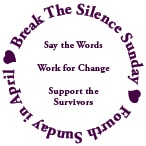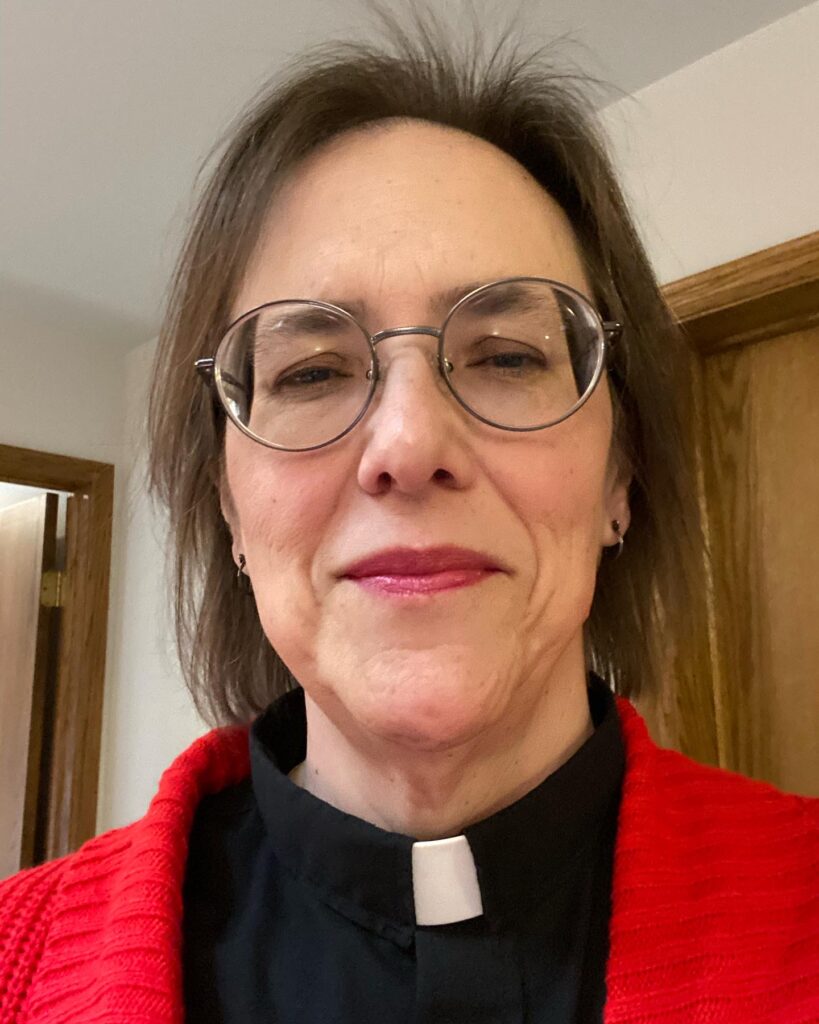Break the Silence Sunday
“The church should be the place where our healing can begin, where the pieces of our lives shattered by the violence of rape can be held gently, in love. But sadly, it has not been that for too many survivors.”
― Moira Finley
Around the world, an estimated one in three women will be the victim of rape or sexual violence during their lifetime.[1] Every 68 seconds someone in the United States becomes a survivor of sexual violence.[2]

I am one of those survivors. We live next door, bag your groceries, work with you, and sit in pews near you when the church gathers to worship.
The church should be the place where we can bring our entire selves, the reality and truth of what we have lived through, and be greeted with the abundance of God’s grace, and the support of the people of God. The church should be the place where our healing can begin, where the pieces of our lives shattered by the violence of rape can be held gently, in love. But sadly, it has not been that for too many survivors.
The church has not only been silent in supporting survivors, but they have at times actively perpetuated harmful and dangerous victim shaming and blaming theologies that have led many survivors to never speak the truth of their experience, or to leave the church entirely.
I have been asked what I was wearing (as if it matters), told that because I didn’t die I must have wanted what happened to me, and I have had it repeatedly explained to me that what I experienced is just like Jesus’ suffering and it’s sure to bring me closer to God, all this not from members of more conservative traditions, but from our very own United Church of Christ.
Many survivors, myself included, struggle with big faith questions about our experiences – where was God; how does my experience change being created in God’s image; am I damaged goods; what do I do with all those images of purity, and being washed clean in the scriptures; does and can God still love me if I didn’t fight back, if he was my partner, if I didn’t report, if …?
Survivors are already here in our churches, and we are listening to the church’s silence. It is past time for the church to speak up, not just to create a culture of consent, but to support and nurture the survivors already in our midst. The church needs to say, with one voice, that the Body of Christ has been wounded by rape; that survivors are beloved of God; that we believe them; that what they experienced was never their fault; that we support them; and that we are a place where their stories can be told and their experiences shared without judgement, surrounded by the abundant love of God.

Rev Moira Finley is the pastor of St. John’s UCC (Cecil, WI), Trinity UCC (Shiocton, WI), and St. John’s UCC (Black Creek, WI) and is the creator of Break The Silence Sunday, a movement to help churches better support survivors of sexual violence (https://breakthesilencesunday.org/).
Contact: pastormoira73@gmail.com or breakthesilencesunday@gmail.com
[1] World Health Organization, on behalf of the United Nations Inter-Agency Working Group on Violence Against Women Estimation and Data (2021).
[2] Department of Justice, Office of Justice Programs, Bureau of Justice Statistics, National Crime Victimization Survey, 2019 (2020). Note: RAINN applies a 5-year rolling average to adjust for changes in the year-to-year NCVS survey data.
Related News
What Can We As Churches Do to Care for God’s Creation?
As Christians, we are called to care for all of creation: land, water, air, animals, plants,...
Read MoreIn Midst of Anti-Immigrant Discourse, People of Faith Must Offer a Prophetic Welcome
In the midst of the 2024 presidential election, anti-immigrant rhetoric is on the rise. A...
Read MoreJPANet February 2024 Newsletter
Happy new year advocates! Each month we ask UCC advocates to help us unpack the complex...
Read More
